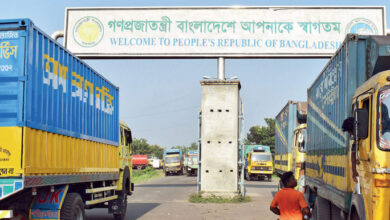ADB signs agreements for $490 million loans to Bangladesh
A $300 million loan agreement has been signed to enhance urban governance, alongside an additional loan of $190 million dedicated to the rural connectivity improvement project

Dhaka: The Asian Development Bank (ADB) and the Government of Bangladesh today signed two agreements for $490 million in loans to enhance urban governance and rural road improvement in the country.
Sharifa Khan, secretary of Economic Relations Division, and Edimon Ginting, ADB Country Director for Bangladesh, signed the agreements on behalf of Bangladesh and ADB, respectively.
Improving Urban Governance and Infrastructure
A $300 million loan agreement was signed to help achieve integrated and sustainable urban development to improve the livability of 88 municipalities, benefiting 7.6 million citizens in Bangladesh.
The programme aims to strengthen urban governance and provide capital investment for improved delivery of municipal services based on the Municipal Development Plan of Bangladesh.
“Climate resilient and sustainable urban development is key to transforming Bangladesh into a middle-income country by 2030,” said ADB Country Director Edimon Ginting.
“Building on ADB’s 20-year experience in urban governance and infrastructure improvement in Bangladesh, this programme will incorporate a performance-based approach to achieve further meaningful municipal reforms,” Ginting said.
To strengthen institutional capacity for inclusive municipal governance, this results-based loan will help prepare and implement an urban governance improvement action plan in each participating pourashava and digitalise the monitoring and evaluation system, including the revenue management system. It will also support specific interventions to promote women’s leadership role, pursue equity through budget earmarking for addressing the specific needs of women and the vulnerable, and adopt guidelines on climate-resilient and socially inclusive public spaces and facilities.
At least 900 kilometers (km) of stormwater drainage will be upgraded, 1,500 km of roads will be rehabilitated, and public facilities will be refurbished or developed considering the needs of women and the vulnerable population. The programme supports urban resilience by scaling the preparation and implementation of risk-informed master planning and investments, with climate financing amounting to 60% of the loan amount.
The program will receive a $200 million cofinancing from the Agence Française de Developpement, while the government has committed to contribute about $189 million to the project.
In addition, ADB will provide technical assistance grants of $1 million from its Technical Assistance Special Fund and $1 million from the Japan Fund for Prosperous and Resilient Asia and the Pacific to support program implementation, specifically the performance monitoring and evaluation and institutionalization of the criteria-based fund transfers to pourashavas.
Rural Connectivity Improvement Project
A $190 million in additional loan was signed for the ongoing Rural Connectivity Improvement Project that is upgrading rural roads, making agricultural areas more productive, and improving socioeconomic centers in rural Bangladesh.
“This project will help improve access to social services and boost economic opportunities in the rural areas while making communities more resilient to climate change and natural disasters,” said Edimon Ginting.
Through this project, ADB will expand and improve rural road networks by making the road design and construction more climate and disaster resilient, Ginting added.
The ongoing project, approved in November 2018, has upgraded about 1,700 kilometres (km) of rural roads, strengthen the capacity of rural infrastructure agencies and road users and improve rural road master planning. More than 900 km of rural roads have been added to the original target since 2020.
This additional financing will further extend the improvement of another 1,350 km of rural roads with climate resilience design and improved safety features. The project also strengthens the capability of the Local Government Engineering Department in adopting the nature-based bioengineering solutions for climate change adaptation.




